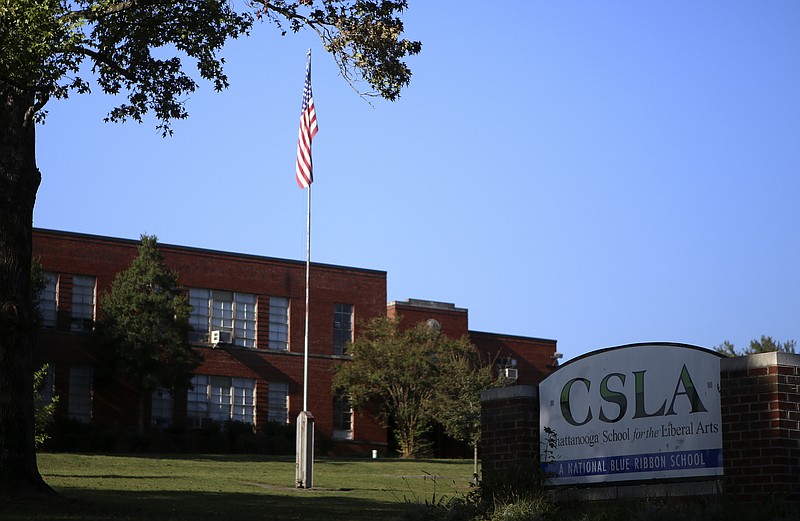It's unlikely that Hamilton County Mayor Weston Wamp will pursue a project he referenced in December that would involve using a portion of the old Chattanooga School for the Liberal Arts in East Brainerd as a low-barrier shelter for homeless students and families.
"I'm hopeful that the old ... CSLA will be repurposed before it inevitably needs to be decommissioned," Wamp said in an interview Jan. 23 with WUTC. "It'll need to be decommissioned because it's a 30-acre tract of land that the school system owns, and we'll end up building a new school there at some point."
"I don't know that the low-barrier shelter idea will end up working out," he continued. "It's in the city of Chattanooga. There would be a need that I'm not sure would be met for the (city of Chattanooga) fire marshals office to work with us."
Wamp elaborated on that decision in an interview with the Chattanooga Times Free Press on Friday, stating that the county is continuing to explore different opportunities for the site.
The facility is in a strategic location, Wamp said, and although it's inappropriate for a school, there could be another temporary use for it. Using it as a low-barrier shelter, however, has also proved unsuitable.
"The city fire marshal's .... willingness to work with us on CSLA being an option as a low-barrier shelter was a prerequisite," Wamp said Friday. "It doesn't look like there's any flexibility there."
Additionally, Wamp said emergency shelters in the area did not reach capacity during the single-digit cold snap that occurred in December, suggesting there are still adequate resources for the homeless population. Wamp said the county does have an issue with homelessness, and he and Hamilton County Schools Superintendent Justin Robertson are sensitive to the problem as it applies to students.
"But, it's possible, depending on the broad definitions of homelessness, that we overstate the degree of homelessness because our existing shelters, as we've done due diligence, often have capacity," he said. "We don't want to go spend money to open up a facility that's then not going to be used because there's been a lot of talk about homelessness that might actually exceed the demand."
Ellis Smith, the director of special projects in Chattanooga Mayor Tim Kelly's office, said in a phone call Friday that the city did have inspectors review the building at the county's request. Many buildings constructed before the 1970s suffer from asbestos, he noted, and don't have sprinklers.
Kirsten Yates, Kelly's senior advisor for communications and digital strategy, added that there are major differences between cold weather shelters and low-barrier shelters.
"The primary difference is many folks experiencing homelessness don't want to go into the cold weather shelter because there's not a safe place to store their things," she said in a phone interview. "They're very afraid that their stuff will get stolen while they're sleeping, which is a common occurrence."
That can deter people from staying at a cold weather shelter. A low-barrier shelter, meanwhile, is constructed to have room for occupants to safely store their belongings and sleep in a more closed off area where they can feel secure, she said.
The city of Chattanooga has set aside roughly $3 million in federal pandemic relief funds to construct a low-barrier shelter of its own, which could serve people suffering from issues such as addiction that could be turned away at other facilities.
As of early January, the city was in the process of conducting environmental and architectural assessments to determine the viability of a short list of potential sites.
Contact David Floyd at dfloyd@timesfreepress.com or 423-757-6249.
